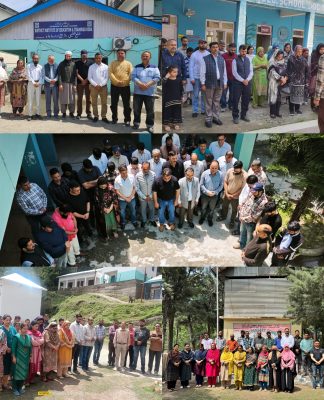Chandigarh: Twenty-five years after an idea to set up a surgical gastroenterology OPD was conceived, the PGI finally realised it on Thursday.
Owing to administrative issues, it took the premier health institute 14 years to start the OPD after it introduced MCh (Surgical Gastroenterology) training course in 2005. The course made it mandatory to have an OPD exclusively for the discipline.
“The plan to have a surgical gastroenterology OPD was conceived in 1994. Since then, it had remained on papers. Even though a super specialty course, MCh, was started in 2005, it took 14 years for the specialised OPD to come up as many people in the administration were not interested. We had last written to the administration regarding this two years ago,” shared GR Verma, Professor and Head, Division of Surgical Gastroenterology. He told media that the delay was caused as the administrative decision did not come.
PGI Director Jagat Ram inaugurated the OPD today. However, the hospital is yet to start a separate department of surgical gastroenterology. “It is a long process as we have to finalise all the modalities before seeking an approval,” added Dr Verma.
The attendance of patients of gastrointestinal diseases at the PGI has increased from 14,000 in 2005 to 34,500 in 2017. Ninety per cent of the cases are of surgical gastroenterology. Similarly, the number of operations also doubled from 2,500 per annum.
The PGI Director assured of speeding up the process of upgrading the division of surgical gastroenterology into an independent department. Dr Rajesh Gupta of the division said, “It will improve the quality of services and streamline the flow of patients visiting the institute for treatment of complex diseases of gastrointestinal tract. Currently, six senior residents are pursuing this course.”
Patient count doubles in 10 yrs
- Plan to set up surgical gastroenterology OPD was first conceived in 1994
- MCh, a super specialty course, started in 2005
- 14 years later, surgical gastroenterology OPD set up
- Patients of gastrointestinal diseases rose from 14,000 in 2005 to 34,500 in 2017. Ninety per cent of these are of surgical gastroenterology
- Number of operations also increased from 2,500 to more than 5,000 per annum during the period













































